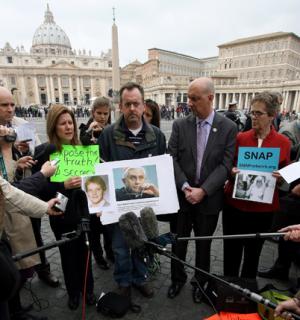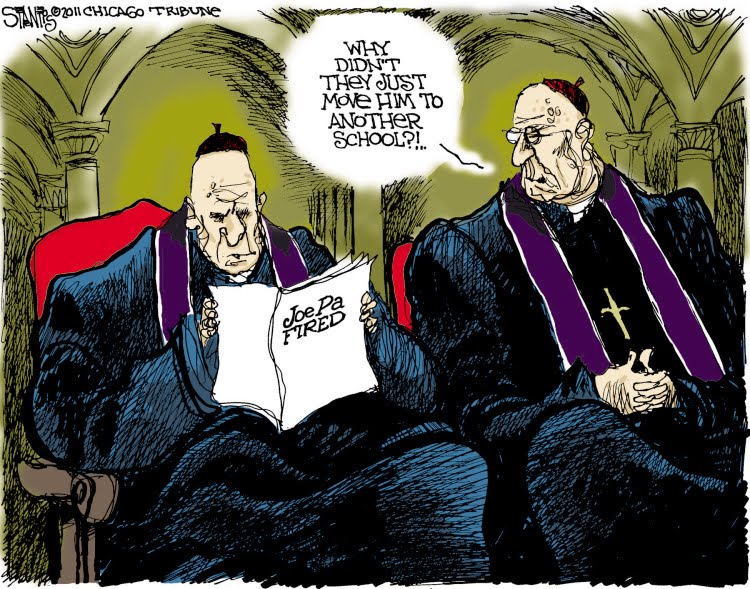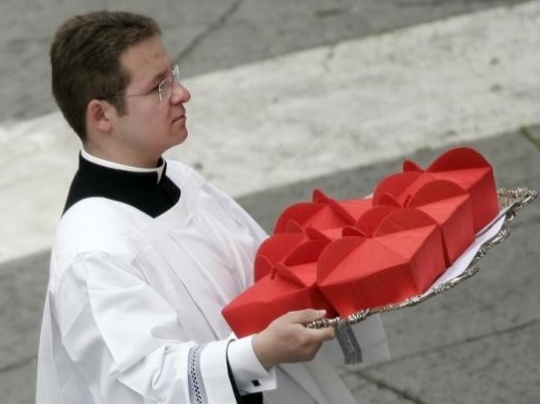Attorneys who deposed the director of the Survivors Network of those Abused by Priests (SNAP) in January are requesting he be compelled to give more testimony and allege that the group is not covered by confidentiality protections afforded to rape crisis centers, court filings reveal.
 The documents, dated Feb. 10 but obtained by NCR on Wednesday, relate to a Kansas City, Mo., court case that made headlines in December when it became the first where lawyers sought the deposition of a SNAP leader and requested that the organization hand over 23 years of internal records, correspondence and email.
The documents, dated Feb. 10 but obtained by NCR on Wednesday, relate to a Kansas City, Mo., court case that made headlines in December when it became the first where lawyers sought the deposition of a SNAP leader and requested that the organization hand over 23 years of internal records, correspondence and email.
Speaking to NCR, David Clohessy, the group’s director and subject of the Jan. 2 deposition, said the continuing legal battle over the case has left the group “basically broke” and “without enough money for the next payroll.”
Clohessy, who said after his deposition that he had refused to answer many of the lawyers’ questions and to submit many of the requested documents, also said the financial struggles led him to release his lawyer. He said he is currently representing himself in the case while he searches for a lawyer willing to serve pro bono.
The Feb. 10 motion, filed in the case of Kansas City diocesan priest Fr. Michael Tierney, requests that Jackson County, Mo., Circuit Court Judge Ann Mesle compel Clohessy to answer the questions he refused to answer in the deposition and provide the documents he withheld.
Mesle’s ruling in the case could have wider significance, as SNAP has also been subpoenaed to provide similar testimony and documents in a case involving allegations of sexual misconduct against a priest in the St. Louis archdiocese.
Clohessy and Barbara Dorris, SNAP’s outreach director, received subpoenas in January requesting their deposition in that case. Depositions were originally set for Wednesday but have since been postponed.
While some of the information contained in the suggestions made by Tierney’s lawyers in connection with the Feb. 10 motion has already been reported, the 34-page filing also seems to reveal key parts of the lawyers’ strategy, giving reasons why they believe Clohessy should be forced to answer their questions.
The motion also represents the first time information about the testimony has officially been made public. While court filings indicate that Mesle ordered parts of the proceeding’s transcript to be unsealed in late January, a clerk with the Jackson County courthouse said it had not yet been released because it is still under review by attorneys in the caseWhile Mesle had ordered Clohessy to turn over eight categories of documents from SNAP’s files during the deposition, the motion alleges the SNAP leader did not submit documents in six of the eight categories requested and only submitted a portion of those requested in the seventh and eighth.
The motion gives eight categories of arguments for why Clohessy should be compelled to answer more questions in the case. The motion devotes 16 pages to refuting SNAP’s arguments that it has confidentiality protections afforded by Missouri law for rape crisis centers.
Among nine separately developed points in that regard, the motion alleges that Clohessy’s answers to some of the questions in the deposition “demonstrate that SNAP is not an RCC [rape crisis center],” and proceeds to list 20 separate reasons from his testimony that the group such not be considered such an organization.
Included in those reasons is the fact that SNAP has “never advertised itself” as such a center, that Clohessy does not have any formal training or education in rape crisis counseling, that SNAP does not employ any licensed counselors in Missouri, and that the group’s tax returns for 2006-10 did not make reference to it being a rape crisis center.
Additionally, the motion alleges that public information demonstrates that SNAP is not such a center — specifically the fact that the group “does not appear” to be in partnership with the National Sexual Assault Hotline and that it was not found in the Yellow Pages under listings of rape crisis centers.
Among other reasons the motion gives for arguing that SNAP is not covered by Missouri’s protections for rape crisis centers is the fact that Clohessy allegedly said in the deposition that the group would not release confidential information about survivors even if they sign a waiver allowing him to.
Rebecca Randles, the attorney representing the plaintiff in the abuse case, said in a phone interview Thursday that she thought the motion’s arguments that SNAP could not qualify as a rape crisis center were not “very weighty.”
Referring to one of the arguments the motion makes against SNAP’s qualifications to fit into that definition because Clohessy works out of his home, Randles said the determination for protections under Missouri law come from the substance of what an organization does, not where it is located.
“You have to look at the substance,” Randles said. “The whole question really is: Do people go there because they’re in crisis from sexual assault? And the answer is absolutely, yes they do.”
“The vast bulk of what they do is support victims of rape and assault, so they have to be a rape crisis center,” she said.
Following news of the subpoena requesting Clohessy’s deposition in December, 10 victims’ advocacy groups filed an amicus brief on behalf of SNAP to Missouri’s Supreme Court, writing that Clohessy’s testimony would amount to a “violation of the anonymity and confidentiality” of SNAP members and volunteers and is “plainly unconstitutional.”
Included in that group of organizations were the Foundation to Abolish Child Sex Abuse, the KidSafe Foundation and The National Child Protection Training Center.
Beyond claiming that SNAP should not be considered a rape crisis center under Missouri law, the motion also alleges that were the group to be considered such a center, its conversations with some survivors would not be covered by confidentiality privileges.
Noting that lawsuits filed on behalf of abuse victims regularly include language about how victims have suffered some sort of mental injury from their abuse, the motion alleges that SNAP is “not entitled to the protection of a privilege due to the alleged victims placing their emotional state and mental conditions at issue.”
Specifically, the motion alleges that because several victims in the Kansas City cases claim their memories returned to them years after the abuse, the fact that Clohessy would not discuss the matter indicates they are “trying to shield the very information that would lead a jury to understand that person’s medical history.”
“The matter before this Court involves repressed memory, physical, emotional, and mental injuries,” reads the motion. “The Plantiffs have placed their physical, emotional, and mental conditions at issue, and, therefore, the information possessed by SNAP on these issues is clearly relevant, and any privileges, if any, have been waived.”
Among the additional information the motion confirms about Clohessy’s testimony is that lawyers representing five other Kansas City-area priests accused of abuse listed “cross-notice” for his deposition, allowing them to be present and ask questions.
The motion requests that each of those attorneys also receive copies of the requested SNAP documents.
Mesle had ordered Clohessy to submit documents and correspondence, including emails, from SNAP’s files referring to Tierney or the Kansas City-St. Joseph diocese. Among other categories, Clohessy was also ordered to submit all documents containing references to either Tierney or the diocese from correspondence with the press and the public.
The motion alleges that Clohessy refused to turn over any documents referring to Tierney, and also alleges that he did not turn over requested records of his correspondence with Randles.
The motion also requests that “reasonable attorney fees” be awarded to Tierney’s lawyers for “expenses incurred to obtain” such a court order.
The motion suggests that a “special master,” a legal term for someone authorized to supervise the following of a court order, be appointed in the case to determine “what questions would be proper” to ask of Clohessy and to be present during any additional deposition in order “to make appropriate rulings.”
A hearing on the motion has been set for April 20. Brian Madden, one of the lawyers representing Tierney, said he could not comment on the matter because of a gag order in the case.
For his part, Clohessy said he was still considering what formal reply he might submit to the motion and said he was not sure what the next steps are for SNAP.
Part of the reason for the group’s financial struggles, he said, is that they “never had any inkling that church lawyers would come after us so fast and furiously and never budgeted for it.”
Asked what would happen if Mesle were to order him to answer questions he refused to in the deposition or to submit documents he claims are confidential, he said he would “cross that bridge when we get to it.”
“It’s just hard to imagine that we’ll be forced to violate the privacy of people who have come to us for help, especially people who are so deeply wounded.”
Complete Article HERE!
 Monsignor William Lynn, who’s accused of keeping predator priests in ministry and transferring them from parish to parish, wants his child endangerment case dismissed because of new evidence turned over by the Archdiocese of Philadelphia, including his list of 35 accused priests.
Monsignor William Lynn, who’s accused of keeping predator priests in ministry and transferring them from parish to parish, wants his child endangerment case dismissed because of new evidence turned over by the Archdiocese of Philadelphia, including his list of 35 accused priests.



